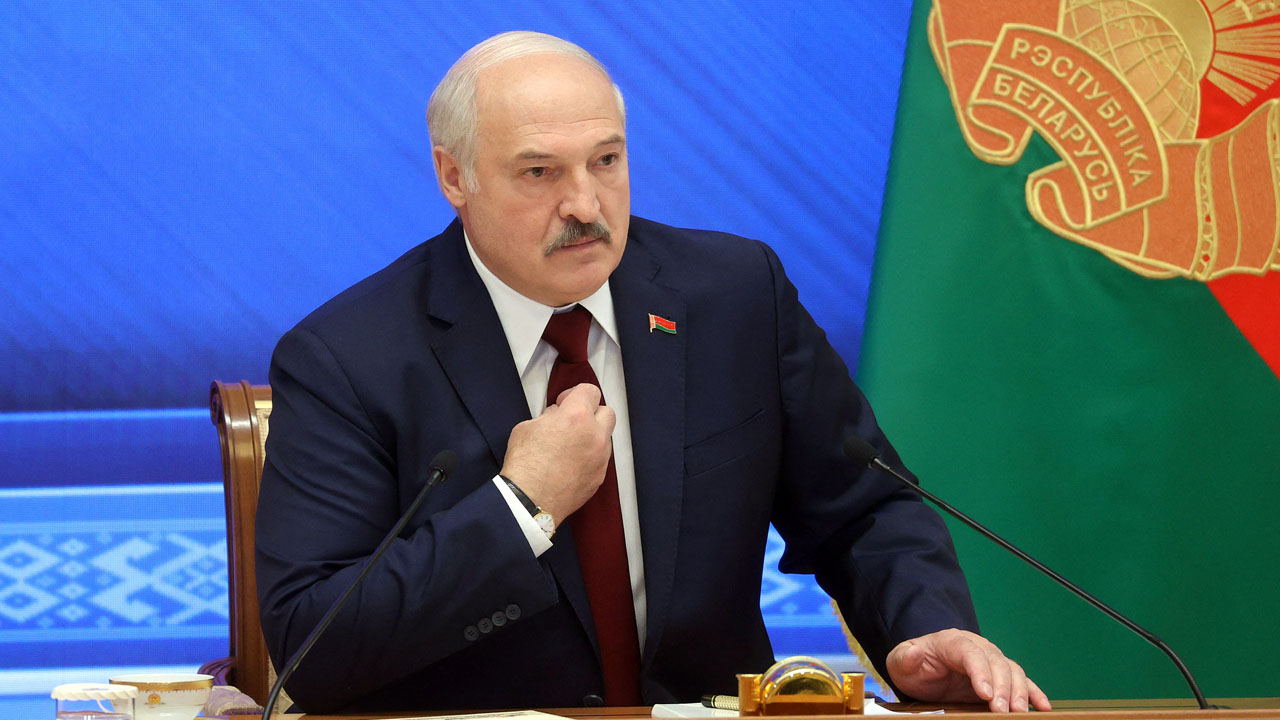
Belarus leader Alexander Lukashenko denied on Monday that his authoritarian government was using torture and violence to silence all dissent, a year after he sparked massive protests by claiming to have won a disputed election.
He also denied his country had any involvement in the death of an activist in Ukraine or in trying to forcibly bring home an athlete from the Tokyo Olympics.
In power since 1994, the moustachioed leader insisted he won a “totally transparent” vote last August and accused the opposition of preparing a “coup”.
But Amnesty International said on Monday that thousands in Belarus had been detained, forced into exile or left to live in fear since protests erupted.
“What repression?” Lukashenko said at his annual press conference, a marathon event that lasts for hours. “Have I shot anyone? Have I killed anyone?”
He denied widespread reports of torture in Belarusian prisons. Local rights groups say Belarus has over 600 political prisoners and have recorded testimonies of torture.
He also said his country’s KGB had nothing to do with the death of 26-year-old Belarusian activist Vitaly Shishov, who was found hanged in a Kiev park last week.
After the death, Ukraine said it would step up security for Belarusian political exiles on its territory.
“He was a nobody for us,” Lukashenko said. “We have enough people to deal with without Shishov,” he said, adding that the death had strained relations with Ukraine.
He then accused runner Krystsina Tsimanouskaya — who claimed the Belarus team tried to forcibly bring her home from the Tokyo Olympics and has since sought refuge in Poland — of being “controlled” by Warsaw.
He denied that the country’s political leadership tried to force the athlete onto a plane to Minsk.
There was “not a single” KGB agent at the Tokyo Olympics, he claimed.
‘Not an easy year’
Lukashenko’s regime has faced increased criticism this summer after the Olympian’s defection and the activist’s death.
Lukashenko — who claims to have won more than 80 percent of the 2020 vote — vowed to resist Western pressure and accused the Belarusian opposition of trying to stage a “coup” last year.
“Some were preparing for fair and honest elections, while others were calling for a coup d’etat,” he told officials and journalists.
The opposition believes Svetlana Tikhanovskaya — who had stood in the election in the place of her jailed husband and now lives in exile — to be the real winner.
Tikhanovskaya has been rallying Western support and recently met US President Joe Biden and UK Prime Minister Boris Johnson.
Lukashenko admitted he had not had “an easy year” and said national unity had been “threatened” by the political crisis.
‘Never get on our knees’
Last week, the trial of the last remaining protest leader still in Belarus — Maria Kolesnikova — started in Minsk.
She has been in custody since September after resisting a forced deportation by the KGB security services by ripping up her passport.
Belarus has also forced more than fifty independent organisations to close this summer, and raided the homes of dozens of journalists.
Lukashenko, who is backed by Moscow, has strived to present the crisis as part of strained relations between the West and Russia.
On Monday, he denounced Western sanctions on his regime and vowed to resist international pressure.
“We will never get on our knees,” he said.
His rival Tikhanovskaya, who now lives in neighbouring Lithuania, is planning to lead a rally in Vilnius to mark the anniversary.
EU foreign policy chief Josep Borrell warned last month that EU member states are drawing up stronger sanctions to add to those already targeting Lukashenko and his allies.
These could be approved at a meeting of EU ministers next month.



